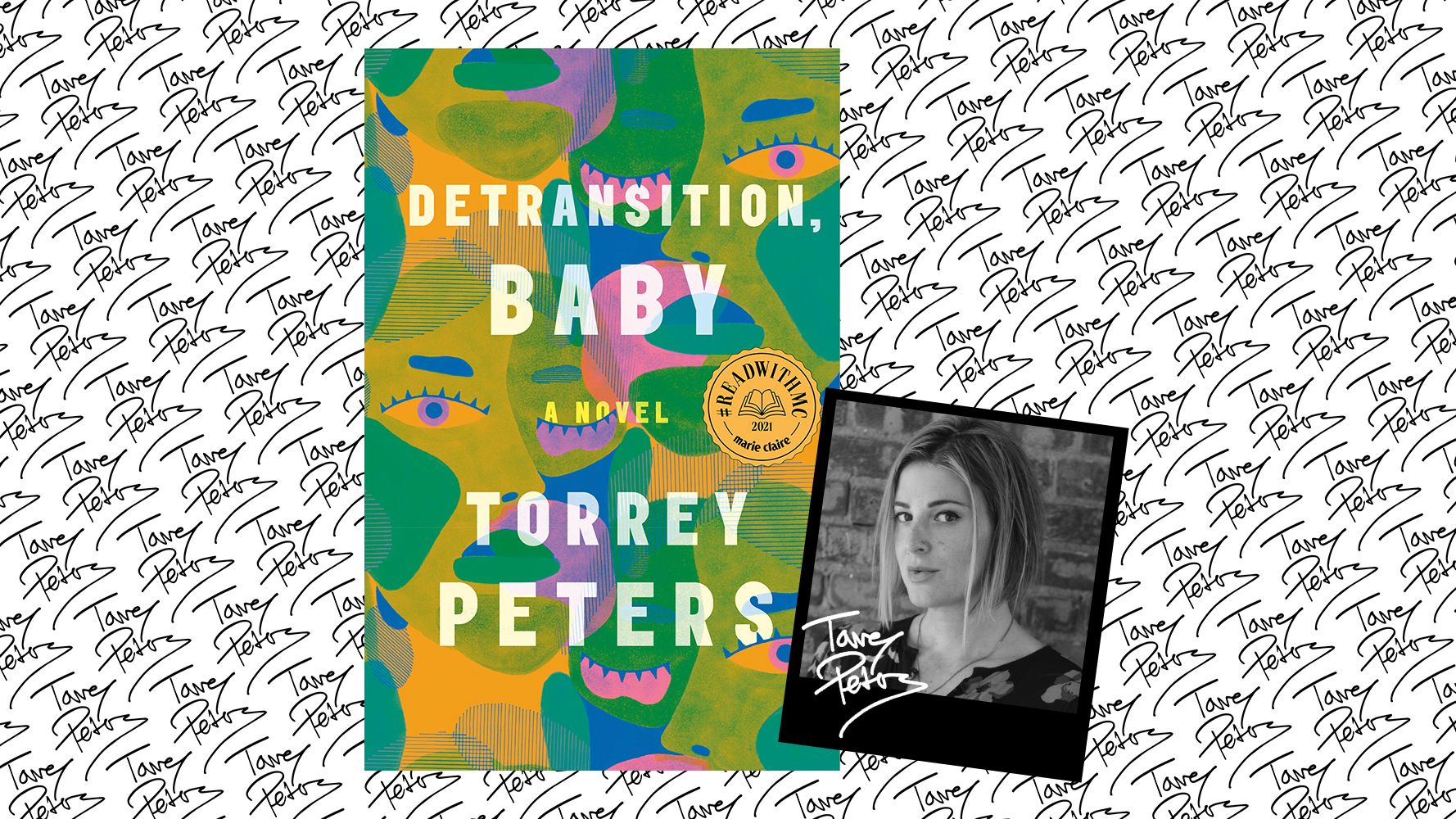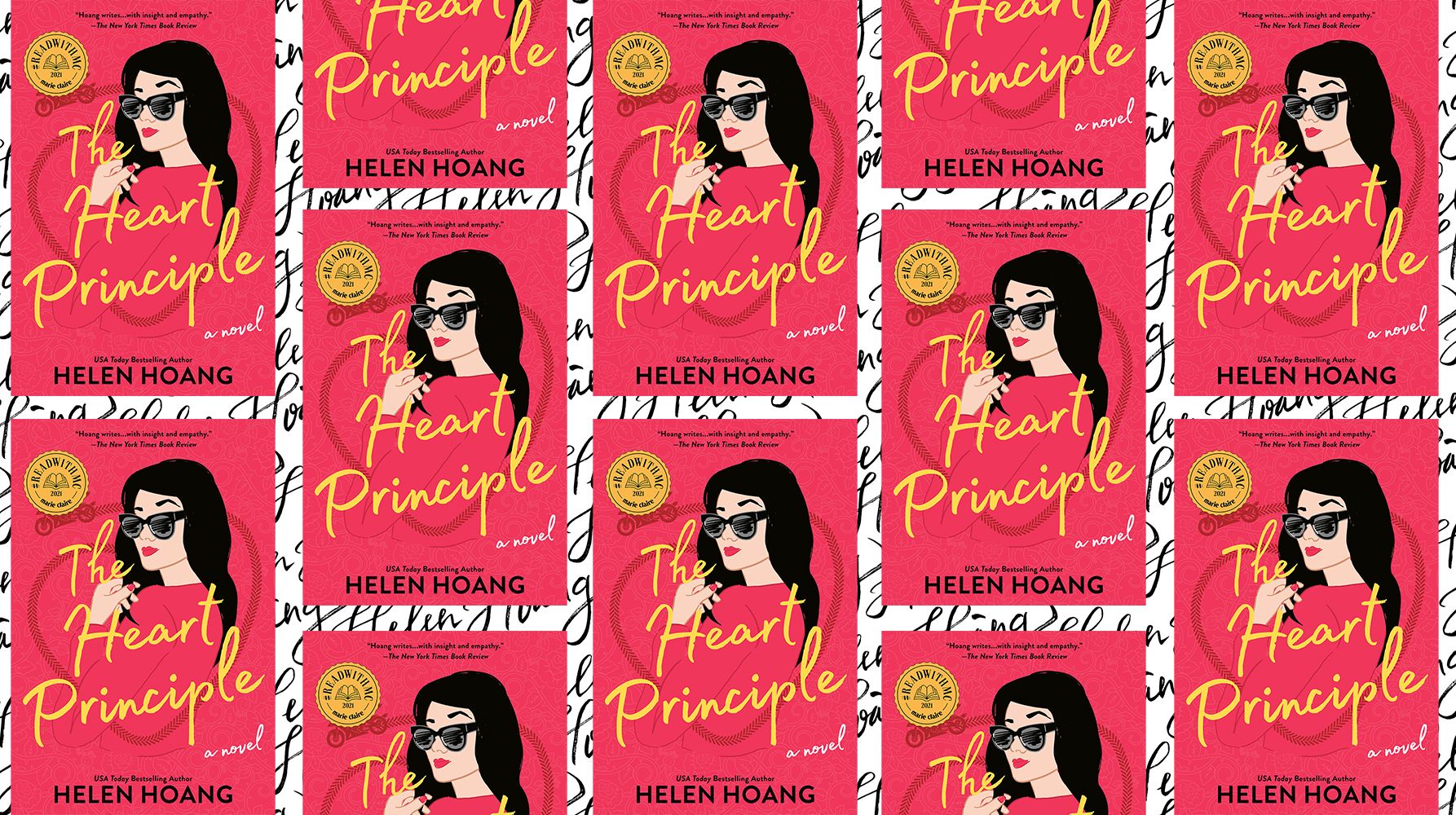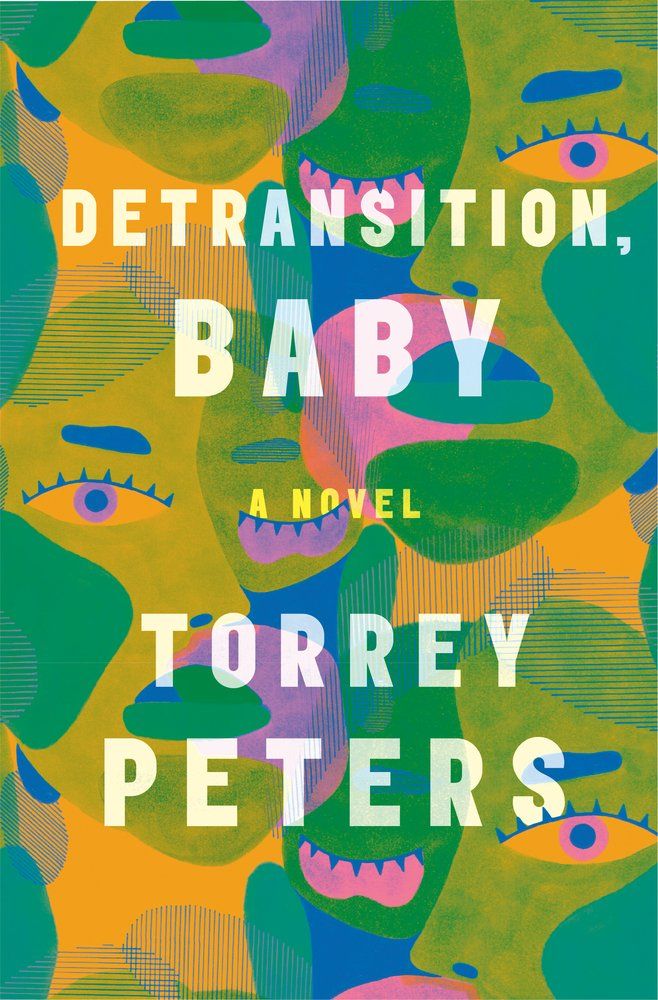'Detransition, Baby' Is Our February Book Club Pick
Read an excerpt from Torrey Peters's buzzy debut novel, here, then dive in with us throughout the month.


Welcome to #ReadWithMC—Marie Claire's virtual book club. It's nice to have you! In February, we're reading Torrey Peters's Detransition, Baby, a story about three people—cisgender and transgender—whose lives become intertwined after a surprise pregnancy. Read an excerpt from the book, below, then find out how to participate in our virtual book club here. (You really don't have to leave your couch!)
Trigger warning: This passage contains descriptions of domestic violence and substance abuse.
Reese was twenty-six the first time a man hit her—as a man will sometimes hit a woman: not to injure her, necessarily, but to show her something. The blow, an open-handed hook, caught her as she opened her mouth to insult him. She hadn’t seen his hand coming. Her head jerked back. Her vision wavered. Surprise turned to pain, which in turn surprised her with its force. “Really?” she asked quietly.
He coiled his muscles tight again, as if to show her that yes, really. If she had it all to do over, she would have spat at him. But her body, which did not like pain, betrayed her, and without thinking, she flinched and blurted out, “I’m sorry.” Satisfied, his shoulders dropped.
Copper trickled thinly from a split lip into the cracks between her teeth. She probed the edges of the cut with her tongue, while her hands hung motionless at her sides, the stillness of an animal turned statue before a predator.
Somewhere distant from her traitorous body, a covert part of her mind slipped away to calculate her advantage. Already she saw the doubt gathering across his face, the regret and worry that he’d hit her too hard. Already, in the cool distance, she saw how this would play out: She would make him suffer for this. She’d chip away at his self-image of a calm, assured, stoic man, ever in control of his will, unable to be goaded. She’d make him guilty, she’d make him doubt, she’d hint at abuse. When the animal part of her body had calmed itself, when the pain had turned to memory, she supposed she’d finger the bruise, almost voluptuously, her trophy from a grim victory. His name was Stanley, and he was a rich man in his late thirties who didn’t like dogs. That he didn’t like dogs was one of the things Reese decided was important about his character. When she told her friend Iris his name, Iris said that there was no such thing as a good Stanley. That the name is a curse that parents place upon a son to ensure the boy grows up to become a douche. Reese knew her Stanley was a douche. Reese desired him, but she wouldn’t say that she liked him. She liked his jealousy, his controlling behavior, the way he told her how to dress. She liked seeing herself through his eyes: vulnerable, fragile, prone to the most exasperatingly feminine qualities—he made fun of her for being obsessed with her looks, for flightiness, dreaminess, and her highly subjective and associative takes on the workings of the world. She liked how he called her a whore, then bought her expensive gifts. Rub his leg, ask for a new dress, get called a bimbo, go shopping for the dress. She liked how infatuated with her he had become, and how much he resented his own infatuation. The more he demeaned her, she knew, the more she’d hooked him. And so goading him into anger took on an unctuous, dangerous pleasure. Her friends hated him.
Only Iris, she of the gorgeous blond hair and the party habit, who frequently disappeared into two- or three-day meth-fueled sex benders, really understood why Reese kept digging in deeper with Stanley. “I want to drive men crazy,” Iris said in her customary arch manner. “I want men to suffer. I want a man to love me so much he murders me. I want to die because I’m loved too much for him to tolerate my existence.”
Reese didn’t want to die. Compared to Iris, Reese felt like she was only playing at this sort of psychodrama—Fisher Price: My First Abusive Man. Whereas Iris only had time for abusive men. Iris had a doll’s eyes and a practiced Marilyn Monroe giggle. She’d been an English major at Brown before she had transitioned, but refused to read any books afterward, and instead presented vacant ambitions in which she could remain an object: get discovered and be a movie star, become a Lana Del Rey song personified. In the post-meth lows, she spoke in other images, laced with serotonin-depleted terror and an almost prideful insistence on describing her own actions in the passive voice: being pimped; having my pussy pledged; spending days in addled semi-captivity among faceless men who made me addicted, who owned me, who fucked me limp, whose lives depend on my body.
Get exclusive access to fashion and beauty trends, hot-off-the-press celebrity news, and more.
The dreamy way that Iris talked about what should have been horror made Reese jealous. Before Stanley, Reese’s own sex games only flirted with possession, and alone with her Hitachi, images from Iris’s stories kept making cameos in her fantasies. Hands on her throat. Slaps to her face. Fight leaving her body. To Iris, though, Reese said little, other than “whoa.” Once, Reese asked Iris if she needed help, to get away from those men. In response, Iris grimaced and said, “It’s not like that.” And for once, Reese, the transsexual who hadn’t gone to college, much less Brown, was embarrassed by her sensibilities, as she clutched her pearls, primly imagining the sensationalism of an SVU episode featuring sex trafficking instead of whatever Iris actually got, emotionally or otherwise, from the men with whom she disappeared. It was the same tone of uninformed concern that older cis people used with Reese when they discovered she was a transsexual: Oh dear, your life must really not be okay. The response always surprised them: I chose this. I want it. It makes me feel right. Whatever Iris was getting, Iris got it because she found in it something she wanted and Iris had shared it with Reese, because she had sensed that lurking in an unspoken place Reese craved something kindred. The least Reese could do was passibility honesty to not pretend like she didn’t understand the chaos that separated what can be wanted and what can be said.
Consider for a moment Reese’s own damage: She met Stanley on a fetish site with the word “tranny” in its name. During that period of her life, Reese only ever dated on fetish sites. She disdained the trans girls who disdained tranny chasers. It’s stupid to rule out every single man who has come to the understanding that he desires your body. It’s a mark of prudish inexperience to think that being fetishized and objectified isn’t the hottest thing going in the bedroom.
The only thing you can’t have is a decent guy who will take you home for Thanksgiving dinner, but you’re not going to get that off a non-fetish site either, so at least have the good sex.
Reese’s dating practice prescribed that the only chasers you had to avoid were the crypto-trans women, the ones who want to be women but are too closeted to handle it, and so they live their fantasies through you. You can feel it when you’re with a crypto-trans. A crypto-trans has to evacuate you, your personhood, to use you, to fantasize that he is you getting fucked even as he fucks you. You’re just a body for him to live through vicariously. It’s the most alienating thing in the world. It’s like being psychically worn. Like you’re a glove. Reese fled at the first sign of a crypto-trans. She wished they’d just become ladies and stop being so weird.
But every other chaser? Why bother convincing clueless, gun-shy boys on OkCupid of the sexiness of a girl with a cock when there are thousands of men out there who already know it, and among whom you get to have your pick? Want a movie star? You can have one (albeit a B-lister if you’re willing to satisfy a guy’s curiosity about bottoming for a transsexual, otherwise a C-lister). Want a tech scion to show you his yacht? Great! The ones with powerboats are best, guys with sailboats will make you pull random ropes, and to imagine yourself as a cool Jackie O is one aspirational self-delusion too far. Want a walking Bruce Weber photograph with washboard abs cut so deep it looks like he’s constantly side-lit? Take a couple of male models and save one for later. The only thing you can’t have is a decent guy who will take you home for Thanksgiving dinner, but you’re not going to get that off a non-fetish site either, so at least have the good sex.
How many girls did Reese know who, to prove to themselves that they could be just like every other woman, found themselves sifting through thousands of men on some straight dating site, looking for the non-horrible ones—a task that even cis women find awful? And then, how many times had Reese heard about these girls who wasted hours, days, weeks, months trying to find one of the non-horrible ones who would be willing to give a trans woman a try, only to finally end up in his bedroom, standing exposed with only a stupid lacy lingerie set for armor, as he sized up the new-to-him proportions of slender hips to wider shoulders, and nervously muttered that it’s not for him?
No way. That shit is way more traumatic than running into any chaser. Go to a fetish site for men who already know they want a trans girl, and select a decent one from among the many begging for you. In matters of the heart, Reese had one firm maxim: You don’t get to choose who you fuck, you get to choose from among those who want to fuck you.
From the book Detransition, Baby by Torrey Peters. Copyright © 2020 by Torrey Peters. Published by One Word, an imprint of Random House, a division of Penguin Random House LLC. All rights reserved.
If audio is more your thing, you can listen to the excerpt, below, and read the rest of the book on Audible.
Audio excerpted courtesy of Penguin Random House Audio from Detransition, Baby by Torrey Peters, narrated by Renata Friedman
RELATED STORIES


Rachel Epstein is a writer, editor, and content strategist based in New York City. Most recently, she was the Managing Editor at Coveteur, where she oversaw the site’s day-to-day editorial operations. Previously, she was an editor at Marie Claire, where she wrote and edited culture, politics, and lifestyle stories ranging from op-eds to profiles to ambitious packages. She also launched and managed the site’s virtual book club, #ReadWithMC. Offline, she’s likely watching a Heat game or finding a new coffee shop.

